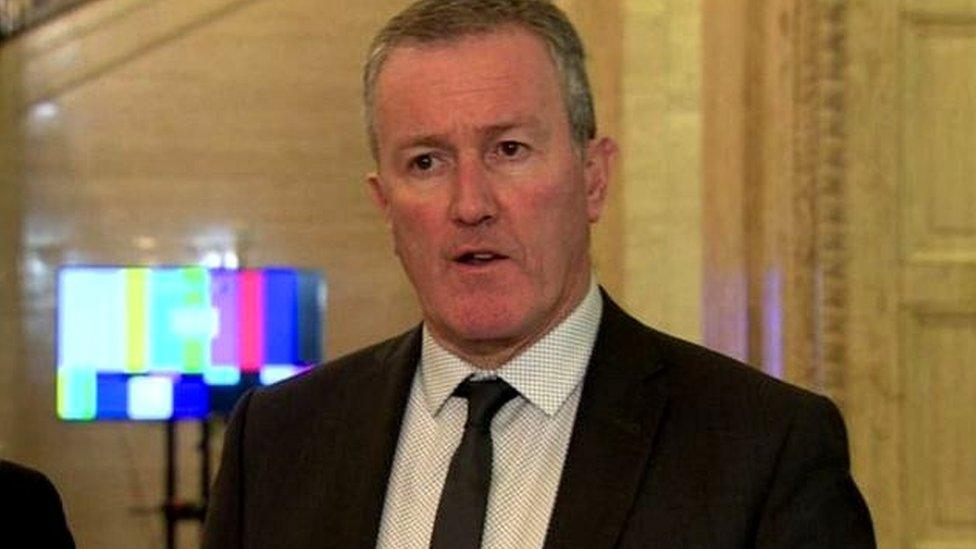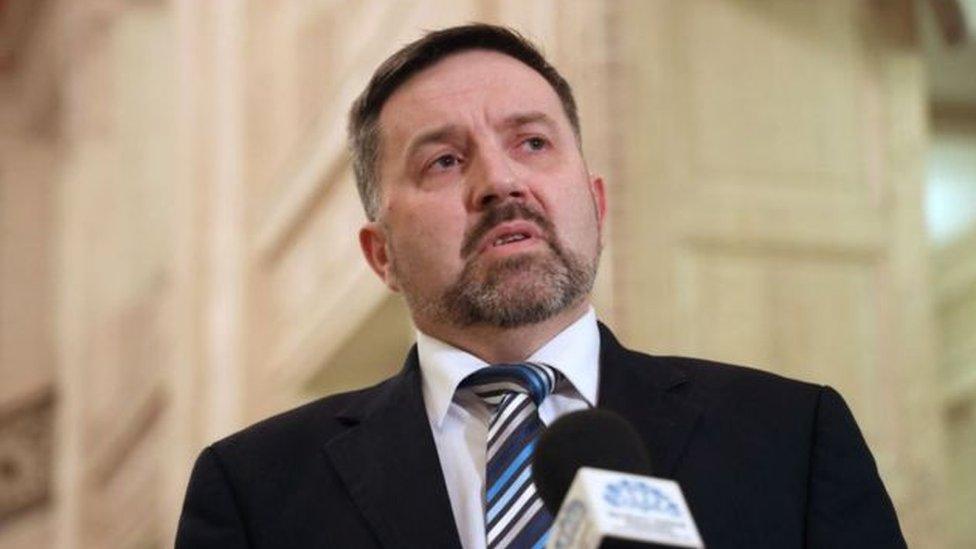Can politicians move past ideological convictions?
- Published

Conor Murphy claimed lockdown was required because of the health service
Wednesday 10 June should have been a great day for Conor Murphy.
With the arrival of £60m worth of personal protective equipment (PPE) from China, the finance minister could banish the negative publicity associated with a previous unsuccessful attempt to order the much needed gear for our frontline workers.
Instead, Mr Murphy tripped up halfway through his victory lap by claiming, on BBC Radio Ulster's Good Morning Ulster, that if it hadn't been for Westminster imposed austerity we wouldn't have had to go into lockdown at all.
This appeared illogical since, in the absence of a vaccine or cure, almost every nation has had to batten down the hatches.
There was also a certain incoherence, given Sinn Féin's previous enthusiasm for a swifter and harsher lockdown than the one Boris Johnson eventually imposed.
Cue a rebuke for Mr Murphy from Health Minister Robin Swann and a series of demands for the finance minister's resignation.

Mr Murphy's comments earned a swift rebuke from Health Minister Robin Swann
Rather than analysing these responses, it might be profitable to reflect on the fact that almost all our politicians navigate the novel challenges provided during this pandemic by concluding they re-enforce rather than undermine their own long held ideological convictions.
On a previous edition of Inside Politics Q&A, Sinn Féin's John O'Dowd (he of the "shire of bs" tweet) argued the media critique has been all one way.
When republicans criticise UK policy and argue for a united island approach to the health crisis, Mr O'Dowd contended, they are castigated for seeking to exploit the virus for political advantage.
However, the Upper Bann MLA reckons unionists who cite the chancellor's generous job retention scheme as an argument in favour of staying in the UK aren't picked up in the same way.
Maybe he has a point. So let's create an award for the leader prepared to banish their own shibboleths.
Lessons to be learned
The unionist who decides a north-south approach makes sound epidemiological common sense, or the republican who is prepared to praise the UK furlough scheme without reservation.
For good measure, we could throw in the conservative free marketer who acknowledges state intervention may well continue to be critical in the months ahead, or the socialist who recognises the ingenuity of capitalist entrepreneurs in swiftly turning their business operations around to manufacture PPE or plug other gaps in our shattered supply chains.
This isn't just a parlour game - if we do face a second wave of Covid-19, then we need to have the honesty to learn lessons accurately from the first.
It's human nature for politicians and other key players (and commentators like me) to defend our own actions and assumptions.
However a transparent, pragmatic, evidence-led approach is more likely to help us all construct an economy, society and public health system which will be more robust in the face of whatever shocks the future might bring.
Next week Inside Politics Q&A will focus on south Belfast and my colleague Gareth Gordon will be taking over my presenter duties.
If you have any questions for Gareth to put to his panel of elected representatives, please email Inside.Politics@bbc.co.uk or tweet using our hashtag #bbcip
